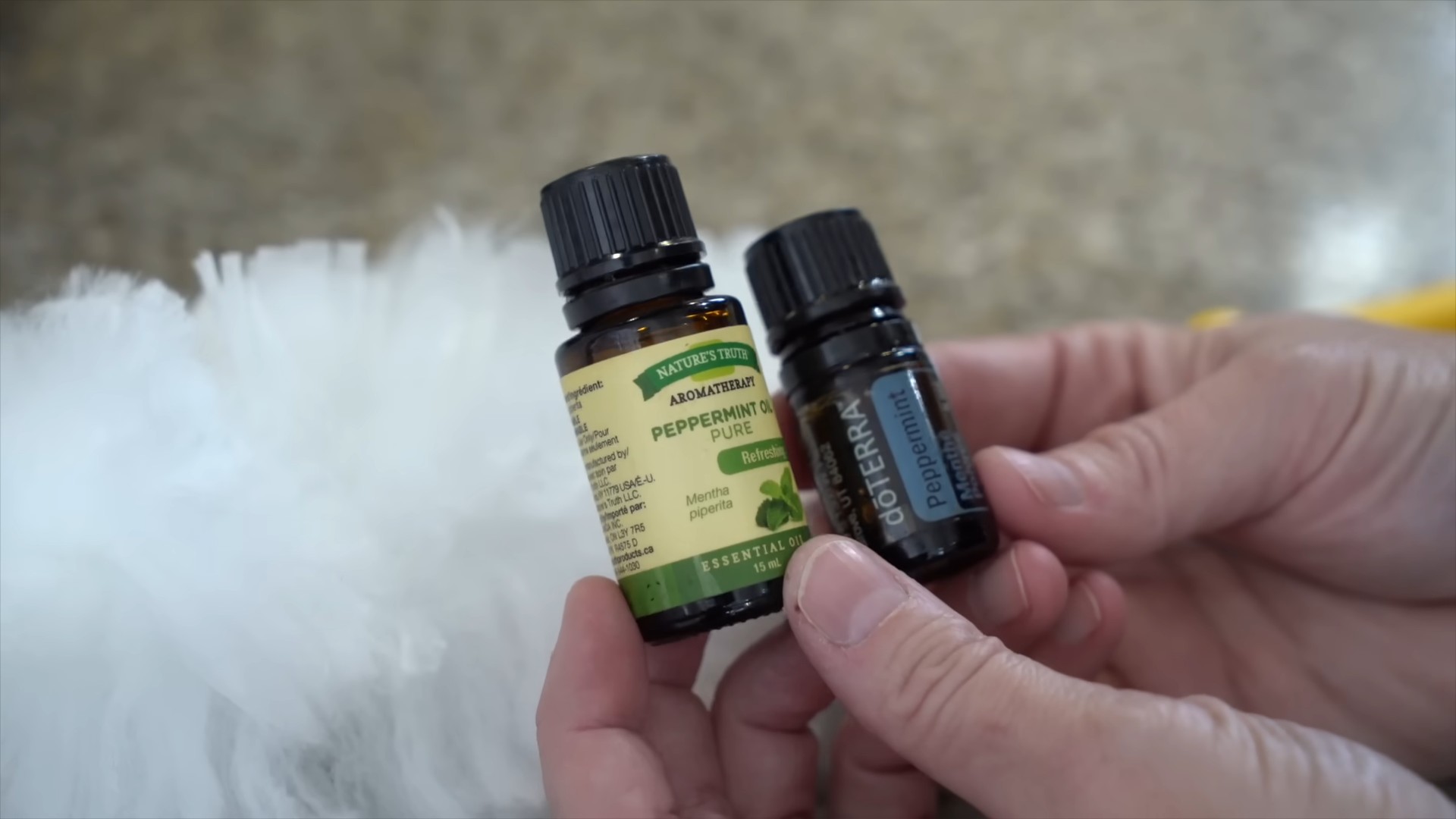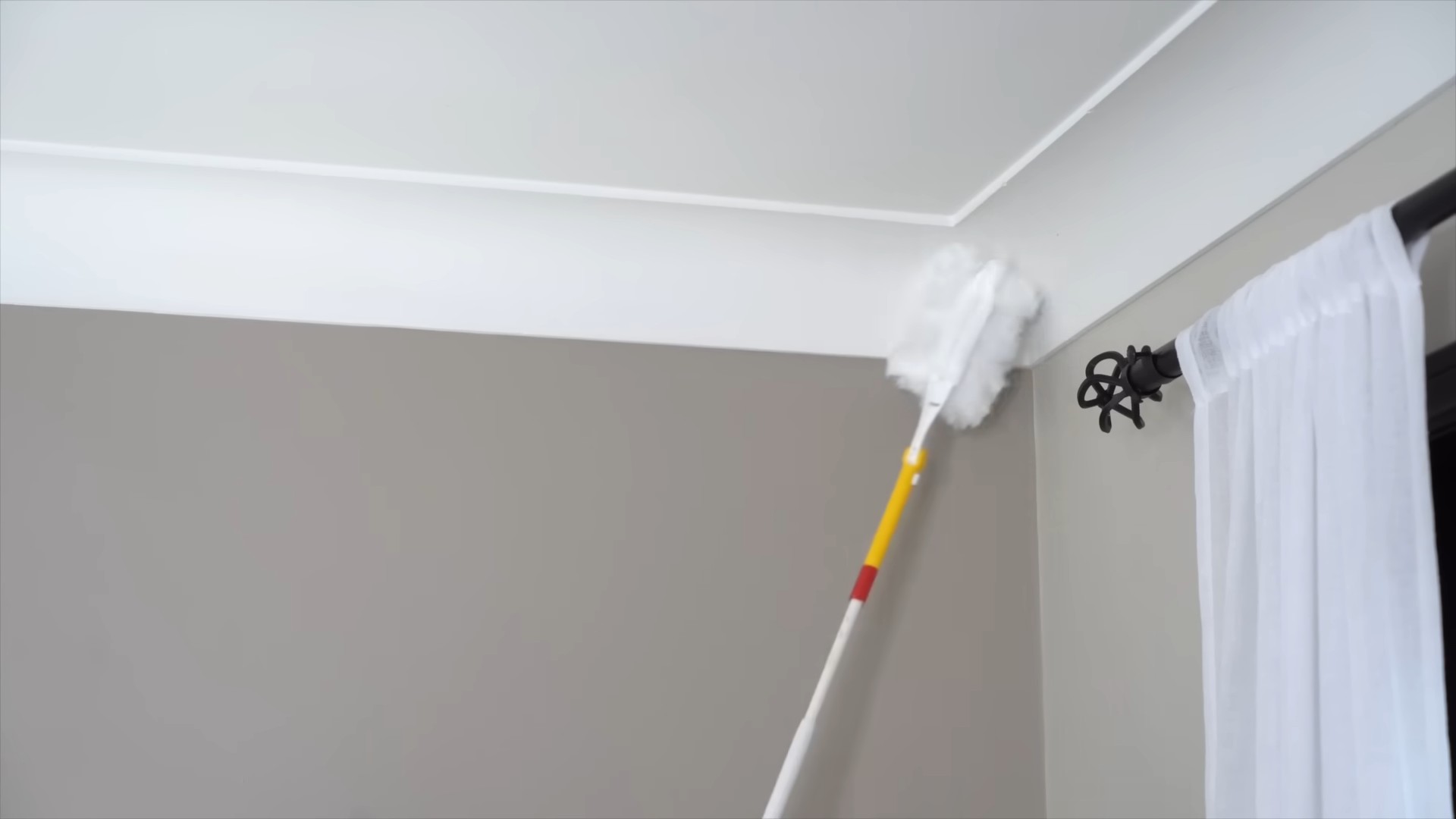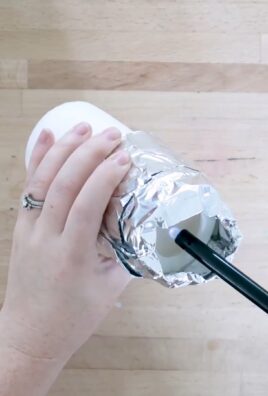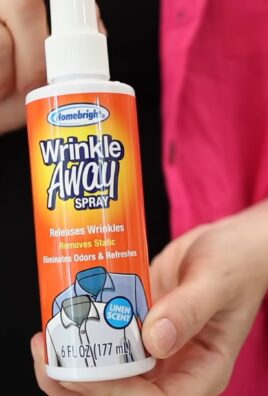Peppermint oil pest control: It’s the secret weapon every home gardener needs, and I’m so excited to share this simple, effective, and all-natural DIY trick with you! Are you tired of those pesky bugs munching on your precious plants, turning your garden dreams into a buggy nightmare? I know I was! For years, I battled aphids, spider mites, and all sorts of creepy crawlies, resorting to harsh chemicals that I just didn’t feel good about using around my family and pets.
But then, I stumbled upon the power of peppermint oil. While its use as a natural insecticide isn’t exactly ancient history, peppermint itself has been valued for centuries across various cultures for its medicinal and aromatic properties. From ancient Egyptians using it for digestive ailments to Romans crowning themselves with peppermint garlands, this herb has a rich and fascinating past. Now, we’re harnessing its potent scent to protect our gardens!
Why is this DIY trick so essential? Because it offers a safe, eco-friendly alternative to synthetic pesticides. You can protect your plants, your family, and the environment all at once. Plus, it’s incredibly easy and affordable to make your own peppermint oil pest control spray. I’m going to walk you through the entire process, step-by-step, so you can say goodbye to those unwanted garden guests and hello to a thriving, healthy, and bug-free oasis!

DIY Peppermint Oil Pest Control: A Natural Solution for a Pest-Free Home
Hey there, fellow DIY enthusiasts! Are you tired of creepy crawlies invading your personal space? Do you cringe at the thought of spraying harsh chemicals around your home, especially if you have kids or pets? Well, I’ve got a fantastic, all-natural solution for you: peppermint oil pest control! It’s effective, smells amazing, and is super easy to whip up. I’ve been using this method for years, and I’m excited to share my secrets with you. Let’s get started!
Why Peppermint Oil?
Before we dive into the how-to, let’s talk about why peppermint oil is such a great pest deterrent. Peppermint oil contains a high concentration of menthol, which is a natural insect repellent. Many pests, including:
* Spiders
* Ants
* Mice
* Roaches
* Moths
* Flies
* Mosquitoes
…absolutely *hate* the strong scent of peppermint. It disrupts their ability to track food and navigate, effectively sending them packing. Plus, unlike chemical pesticides, peppermint oil is generally safe for humans and pets when used properly.
What You’ll Need
Here’s a list of everything you’ll need to create your own peppermint oil pest control solutions:
* 100% Pure Peppermint Essential Oil: This is crucial! Make sure it’s pure and not diluted with other oils. A good quality oil will be more effective.
* Spray Bottles: You’ll need at least one, but I recommend having a few different sizes for various applications.
* Distilled Water: Tap water can contain minerals that might affect the potency of the oil or clog your spray bottle.
* Liquid Dish Soap (Optional): A tiny bit of dish soap acts as an emulsifier, helping the oil and water mix better.
* Cotton Balls: For placing peppermint oil in specific areas.
* Small Bowls or Dishes (Optional): For creating peppermint oil traps.
* Measuring Spoons or Droppers: For accurate measurements.
* Vinegar (Optional): For cleaning surfaces before applying the peppermint oil.
* Baking Soda (Optional): For absorbing odors and further deterring pests.
Making Your Peppermint Oil Pest Control Spray
This is the most common and versatile way to use peppermint oil for pest control. I use this spray all over my house!
Step 1: Gather Your Supplies
Make sure you have everything listed above ready to go. It’s always easier to have everything within reach before you start.
Step 2: Choose Your Spray Bottle
Select the spray bottle you want to use. I usually use a 16-ounce bottle for general use.
Step 3: Add Peppermint Oil
This is the most important step! Add 15-20 drops of 100% pure peppermint essential oil to your spray bottle. If you have a particularly bad infestation, you can increase the amount slightly, but start with this amount and see how it goes.
Step 4: Add Dish Soap (Optional)
If you’re using dish soap, add just a tiny squirt – about 1/4 teaspoon. Remember, a little goes a long way! Too much soap can leave a residue.
Step 5: Add Water
Fill the rest of the spray bottle with distilled water.
Step 6: Shake Well
Secure the spray nozzle and shake the bottle vigorously for at least 30 seconds to ensure the oil and water are properly mixed. Remember, oil and water don’t naturally mix, so you’ll need to shake it well each time before you use it.
Step 7: Test Spray
Before spraying all over your house, test the spray in an inconspicuous area to make sure it doesn’t stain or damage the surface.
Where to Spray
Now that you have your peppermint oil spray, it’s time to put it to work! Here are some key areas to target:
* Entry Points: Spray around doors, windows, and any cracks or crevices where pests might be entering your home.
* Baseboards: Pests often travel along baseboards, so spray them thoroughly.
* Kitchen: Pay special attention to areas around sinks, countertops, and pantries.
* Bathrooms: Spray around toilets, sinks, and showers.
* Garages and Basements: These areas are often damp and attractive to pests.
* Gardens: You can also use peppermint oil spray to deter pests in your garden, but be careful not to spray directly on plants, as it can burn them. Dilute the spray further for garden use.
* Under Appliances: Areas under refrigerators, stoves, and dishwashers are prime hiding spots.
Important Spraying Tips:
* Shake before each use: The oil and water will separate over time, so shake well before each application.
* Spray liberally: Don’t be afraid to spray generously, especially in areas where you’ve seen pests.
* Reapply regularly: Peppermint oil’s scent will fade over time, so reapply the spray every few days, or as needed.
* Avoid spraying directly on food: While peppermint oil is generally safe, it’s best to avoid spraying it directly on food or food preparation surfaces.
* Be mindful of pets: While peppermint oil is generally safe for pets, some animals may be more sensitive to it than others. If you notice any adverse reactions, discontinue use.
Using Peppermint Oil with Cotton Balls
This method is great for targeting specific areas or for creating a longer-lasting deterrent.
Step 1: Soak Cotton Balls
Saturate cotton balls with 100% pure peppermint essential oil. You want them to be thoroughly soaked, but not dripping.
Step 2: Place Cotton Balls
Place the soaked cotton balls in areas where you’ve seen pests or where you suspect they might be hiding. Some good spots include:
* Inside cabinets and drawers
* Under sinks
* In closets
* Behind appliances
* In corners of rooms
Step 3: Replace Regularly
The scent of the peppermint oil will fade over time, so replace the cotton balls every few weeks, or as needed.
Creating Peppermint Oil Traps (For Mice)
While peppermint oil is primarily a deterrent, you can also use it to create simple traps for mice. This is a more humane alternative to traditional mouse traps.
Step 1: Prepare Your Bowls
Place a few small bowls or dishes in areas where you’ve seen mice activity.
Step 2: Add Peppermint Oil and Water
Fill each bowl with a mixture of water and 10-15 drops of peppermint essential oil.
Step 3: Add Bait (Optional)
You can add a small amount of bait to the bowls to attract the mice. Peanut butter or oatmeal works well.
Step 4: Check Regularly
Check the bowls regularly to see if you’ve caught any mice. If you do, release them far away from your home.
Important Note: This method is not always effective, and it’s best used in conjunction with other pest control measures.
Boosting Your Peppermint Power: Combining with Other Natural Solutions
For even greater pest control, consider combining peppermint oil with other natural solutions. Here are a few ideas:
* Vinegar: Vinegar is a natural cleaner and disinfectant that also repels pests. You can use a vinegar and water solution to clean surfaces before applying peppermint oil.
* Baking Soda: Baking soda absorbs odors and can also deter pests. Sprinkle baking soda in areas where you’ve seen pests, such as under sinks or in cabinets.
* Diatomaceous Earth (DE): DE is a natural powder made from fossilized algae. It’s harmless to humans and pets, but it’s deadly to insects. Sprinkle DE around the perimeter of your home or in areas where you’ve seen pests. Important Note: Use food-grade DE only.
* Citrus Peels: Many pests dislike the scent of citrus. Place citrus peels around your home or in your garden to deter them.
* Essential Oil Blend: Combine peppermint oil with other pest-repelling essential oils, such as eucalyptus, tea tree, or lavender, for a more potent effect.
Preventative Measures: Keeping Pests Away for Good
While peppermint oil is a great solution for getting rid of pests, it’s even better to prevent them from entering your home in the first place. Here are some preventative measures you can take:
* Seal Cracks and Crevices: Seal any cracks or crevices in your foundation, walls, and around windows and doors.
* Keep Your Home Clean: Clean up spills and crumbs immediately. Store food in airtight containers.
* Trim Vegetation: Trim bushes and trees away from your home to prevent pests from using them as a bridge to get

Conclusion
So, there you have it! A simple, effective, and wonderfully fragrant way to keep unwanted guests out of your home. This peppermint oil pest control method isn’t just about banishing pests; it’s about creating a healthier, more pleasant living environment for you and your family. Forget harsh chemicals and expensive exterminators. With just a few drops of peppermint oil and some readily available supplies, you can take control of your pest situation naturally and affordably.
Why is this DIY trick a must-try? Because it’s a win-win! You’re not only repelling pests like ants, spiders, and even rodents, but you’re also infusing your home with the invigorating scent of peppermint. It’s a safe alternative to traditional pesticides, especially important if you have children or pets. Plus, it’s incredibly easy to implement and maintain. Think about the peace of mind knowing you’re protecting your home without exposing your loved ones to potentially harmful chemicals.
But the benefits don’t stop there. This method is also incredibly versatile. You can customize the strength of the solution to suit your specific needs and the severity of your pest problem. For a stronger concentration, simply add more peppermint oil. You can also experiment with different application methods. While spraying is effective for large areas, cotton balls soaked in peppermint oil are perfect for targeting specific entry points or hiding spots.
Looking for variations? Consider adding a few drops of tea tree oil to your peppermint oil solution for added antibacterial and antifungal properties. This can be particularly useful in damp areas like bathrooms and kitchens. Another option is to mix peppermint oil with vinegar for a more potent repellent. Just be sure to test this mixture in an inconspicuous area first to ensure it doesn’t damage any surfaces. You can also create a peppermint oil infused cleaning solution by adding a few drops to your regular cleaning products. This will not only help to repel pests but also leave your home smelling fresh and clean.
We wholeheartedly encourage you to give this DIY peppermint oil pest control method a try. It’s a small investment of time and resources that can yield significant results. Imagine a home free from unwanted pests, filled with the refreshing aroma of peppermint, and protected by a natural, safe solution.
Once you’ve tried it, we’d love to hear about your experience! Share your tips, tricks, and success stories in the comments below. Did you find a particular application method that worked best for you? Did you experiment with any variations? Your feedback will not only help us improve this guide but also inspire others to embrace the power of natural pest control. Let’s create a community of pest-free homes, one drop of peppermint oil at a time! Don’t hesitate to share before and after pictures or videos of your DIY pest control journey. We are excited to see how this simple trick transforms your living space. Remember, a little peppermint oil can go a long way in creating a healthier and happier home.
FAQ
Frequently Asked Questions About Peppermint Oil Pest Control
Q: How does peppermint oil actually repel pests?
A: Peppermint oil contains a high concentration of menthol, which is a natural irritant to many pests. The strong scent overpowers their senses, disrupting their ability to find food, navigate, and communicate with each other. This makes them uncomfortable and encourages them to leave the treated area in search of a more hospitable environment. It essentially creates an invisible barrier that they don’t want to cross.
Q: What types of pests does peppermint oil repel?
A: Peppermint oil is effective against a wide range of common household pests, including ants, spiders, mice, rats, cockroaches, moths, and even some types of beetles. While it may not eliminate a severe infestation entirely on its own, it’s an excellent preventative measure and can significantly reduce pest activity. It’s particularly effective against pests that rely heavily on their sense of smell to find food and shelter.
Q: How do I make a peppermint oil pest control spray?
A: The basic recipe is simple: Mix 15-20 drops of pure peppermint essential oil with 1 cup of water in a spray bottle. Shake well before each use to ensure the oil and water are properly mixed. You can also add a teaspoon of dish soap to help emulsify the oil and water, making the solution more effective.
Q: Where should I spray the peppermint oil solution?
A: Focus on areas where you’ve seen pests or suspect they might be entering your home. This includes cracks and crevices, baseboards, windowsills, doorways, under sinks, and around pipes. You can also spray around food storage areas, pantries, and garbage cans. Be sure to avoid spraying directly onto food or delicate surfaces.
Q: How often should I reapply the peppermint oil solution?
A: Reapply the solution every few days, or as needed, especially after cleaning or rain. The frequency of application will depend on the severity of your pest problem and the environmental conditions. In areas with high pest activity, you may need to reapply daily.
Q: Is peppermint oil safe to use around children and pets?
A: While peppermint oil is generally considered safe, it’s important to use it with caution around children and pets. Avoid spraying it directly on them or in areas where they spend a lot of time. Some pets, especially cats, may be sensitive to the strong scent of peppermint oil. If you notice any signs of irritation or discomfort, discontinue use. Always store peppermint oil out of reach of children and pets.
Q: Can I use peppermint extract instead of peppermint essential oil?
A: While peppermint extract contains some peppermint oil, it’s not as concentrated and won’t be as effective at repelling pests. For best results, use pure peppermint essential oil. Make sure to purchase a high-quality essential oil from a reputable source.
Q: What are some other ways to use peppermint oil for pest control besides spraying?
A: Besides spraying, you can soak cotton balls in peppermint oil and place them in areas where pests are likely to hide, such as drawers, cabinets, and closets. You can also add a few drops of peppermint oil to your vacuum cleaner bag to help repel pests while you clean. Another option is to diffuse peppermint oil in your home to create a pest-repelling atmosphere.
Q: How long does it take to see results with peppermint oil pest control?
A: You should start to see results within a few days of applying the peppermint oil solution. However, it may take several weeks to completely eliminate a pest problem, especially if it’s a severe infestation. Consistency is key. Regular application and maintenance are essential for long-term pest control.
Q: What if peppermint oil doesn’t work?
A: While peppermint oil is effective for many people, it may not work for everyone. If you’re not seeing results after a few weeks, you may need to try a different pest control method. Consider combining peppermint oil with other natural repellents, such as vinegar or diatomaceous earth. If the infestation is severe, you may need to consult with a professional pest control service.
Q: Can I grow peppermint plants to repel pests?
A: Yes, growing peppermint plants around your home can help to repel pests. The scent of the plants will deter many insects and rodents. Plant peppermint near entry points, such as doors and windows, to create a natural barrier. However, keep in mind that the concentration of menthol in the plants is lower than in essential oil, so the effect may not be as strong.
Q: Is peppermint oil safe for plants?
A: In general, peppermint oil is safe for most plants when used in diluted form. However, it’s always a good idea to test it on a small area of the plant first to ensure it doesn’t cause any damage. Avoid spraying peppermint oil directly on the leaves of sensitive plants.
Q: Where can I buy peppermint essential oil?
A: Peppermint essential oil is widely available at health food stores, online retailers, and some grocery stores. Look for pure, undiluted peppermint essential oil from a reputable brand. Check the label to ensure it’s 100% peppermint oil and doesn’t contain any additives or fillers.
Q: Can I use peppermint oil to get rid of bed bugs?
A: While peppermint oil may have some repellent properties against bed bugs, it’s not a reliable method for eliminating a bed bug infestation. Bed bugs are notoriously difficult to get rid of, and professional treatment is usually required. Peppermint oil may help to deter them from biting, but it won’t kill them or eliminate the infestation.





Leave a Comment